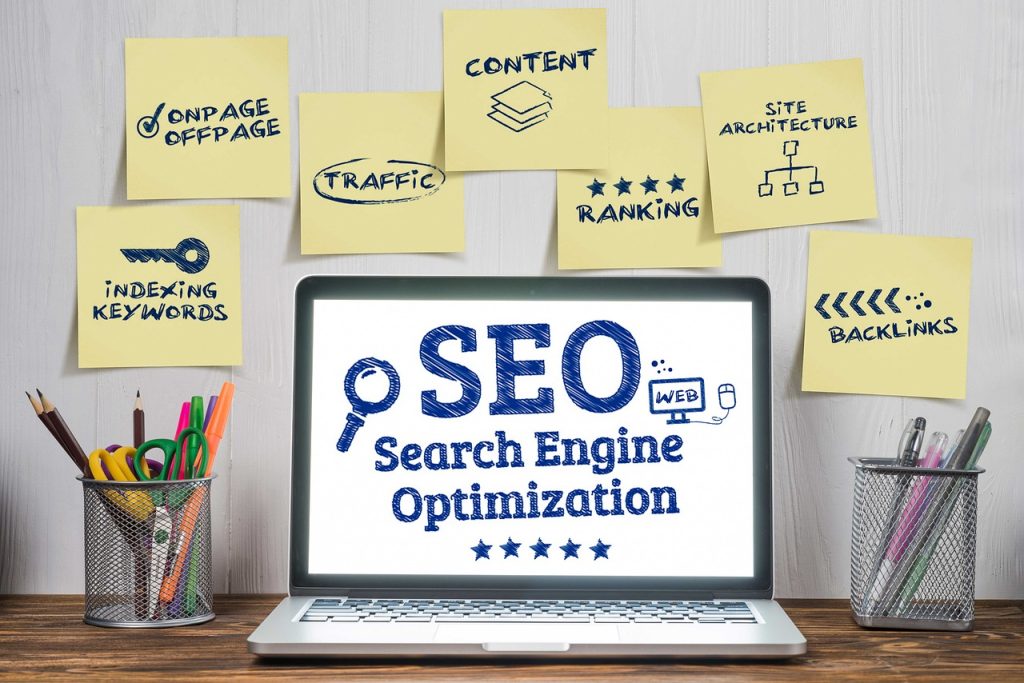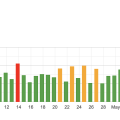Local SEO, or Local Search Engine Optimization, is the practice of enhancing your online presence to attract more business from relevant local searches. Imagine you run a cozy little café in your town, and when someone types “best coffee near me” into a search engine, you want your café to be the first thing that pops up. Local SEO involves strategies like optimizing your Google My Business profile, collecting customer reviews, and using local keywords in your website content to make sure people in your vicinity can easily find you. Essentially, it’s about ensuring your business stands out in the local digital landscape, making it easier for potential customers to choose you over the competition. Have you ever wondered how some local businesses easily attract customers right in your neighborhood while others struggle to get noticed? Ever thought about what makes a local coffee shop pop up instantly when you search for “coffee near me”? It’s no coincidence! The secret sauce is something called Local SEO.
What is Local SEO?
Local SEO, or Local Search Engine Optimization, is a strategic process focused on emphasizing the optimization efforts of local brick-and-mortar businesses. It’s all about ensuring that your company appears when people nearby are searching for the goods or services you offer.
Why Does Local SEO Matter?
The significance of Local SEO lies in its ability to help your business rank better in local search results. Think of it this way, when people are actively searching for a product or service, they often want quick, nearby options. Local SEO ensures that you appear at the top of those search results, making it easier for potential customers to find you.
How SEO Differs From Local SEO
You might be familiar with traditional SEO, which focuses on improving your website’s visibility on a global scale. Local SEO, however, narrows down the focus to your immediate geographical area. It’s less about global recognition and more about becoming the big fish in your local pond.
| Factor | SEO | Local SEO |
|---|---|---|
| Scope | Global or National | Local or Regional |
| Keywords | Broad keywords/phrases | Keywords with local intent |
| Content | General/global topics | Localized content, mentions of locations |
| Backlinks | Authoritative, global sites | Local businesses, newspapers, blogs |
| Ranking | Based on overall authority and signals | Prioritizes proximity, relevance, and reviews |
Key Components of Local SEO
To understand Local SEO better, let’s break down its key components. Getting these components right can significantly enhance your local search presence.
1. Google My Business (GMB)
GMB is a free tool provided by Google that allows business owners to manage their online presence. When you search for a local business, it’s the profile you see on the right side of the search results.
- How to Optimize: Fill out your profile completely, including address, phone number, business hours, and add some high-quality images. Encourage your customers to leave reviews and add regular updates or promotions.
2. NAP (Name, Address, Phone Number)
Ensuring your business’s NAP information is consistent across the internet is crucial for Local SEO. Inconsistencies can confuse search engines and potential customers.
- How to Optimize: Regularly audit business listings on various local directories and make sure your NAP information is identical everywhere.
3. Local Keywords
Using keywords specific to your local market is an essential part of Local SEO. Think about what terms people might use when searching for your services locally.
- How to Optimize: Perform keyword research focused on local terms, such as “Best [Product/Service] in [City].” Use these keywords naturally within your content, meta descriptions, and headers.
4. Reviews and Ratings
Online reviews play a significant role in Local SEO. Positive reviews build credibility and trustworthiness, both in the eyes of potential customers and search engines.
- How to Optimize: Request customers to leave a review after a positive experience. Respond to reviews, both positive and negative, to show engagement and care.
5. Local Citations
Local citations are mentions of your business on other websites, including its NAP information. These citations help to enhance your local SEO.
- How to Optimize: Get listed in local business directories, community boards, and local blogs. The more frequently your business appears across the web, the higher your credibility.
6. On-Page SEO Optimization
Ensuring your website content is optimized for local search is another critical aspect. This includes adding local keywords and ensuring your site is mobile-friendly.
- How to Optimize: Use local keywords in your headers and content, add a map with your location, and make sure your website is responsive and loads quickly.
Advanced Local SEO Strategies
Once you’ve mastered the basics, you might want to dive into more advanced tactics. These can further refine your local search rankings and draw more targeted traffic to your business.
Hyperlocal Content
Create content that focuses on hyperlocal topics – super-specific niches within your local area. This could be neighborhood guides, local events, or localized news.
- How to Implement: Write blog posts about local events, showcase local partners, and create a dedicated page for different communities within your service area.
Local Backlink Building
Backlinks from authoritative local sites can enhance the trustworthiness of your site in the eyes of search engines.
- How to Implement: Partner with local businesses, become a sponsor in local events, or contribute to local news sites or blogs.
Social Media Engagement
While this isn’t a direct ranking factor, being active on social media can drive engagement and signal to search engines that your business is active and trustworthy.
- How to Implement: Post frequently about local events, promotions, and engage with your community online. Use location tags and local hashtags to get noticed.
Local Structured Data Markup
Structured data markup helps search engines understand the context of your content. For local SEO, this often means using schema markup to provide additional details about your business, like hours, locations, and services.
- How to Implement: Use local business schema markup to indicate your business’s name, address, phone number, and other relevant details to search engines.
Common Local SEO Mistakes and How to Avoid Them
Avoiding common pitfalls can save you time and resources in the long run. Here are a few missteps to watch out for:
Inconsistent NAP Information
When your NAP information differs across platforms, search engines and customers can get confused.
- Avoidance Strategy: Regularly update your listings and use tools that can help manage multiple listings from a single dashboard.
Overlooking Reviews
Ignoring reviews or failing to engage with them can negatively impact your online reputation and search rankings.
- Avoidance Strategy: Always engage with reviewers, appreciate positive feedback, and address negative reviews professionally.
Ignoring Mobile Optimization
An unoptimized mobile experience can turn potential customers away and negatively impact your rankings.
- Avoidance Strategy: Ensure your site is mobile-friendly. Test it on various devices and make necessary adjustments for speed and user-friendliness.
Neglecting Your GMB Profile
A half-hearted approach to your GMB profile can make you miss out on crucial local search visibility.
- Avoidance Strategy: Regularly update your Google My Business profile with current information, promotions, events, and photos.
Tracking Your Local SEO Success
Keeping tabs on how your Local SEO efforts are paying off is essential. Here are some ways to measure your success:
| Metric | Tool | Why It Matters |
|---|---|---|
| Traffic | Google Analytics | Measures visits to your site from local searches |
| Rankings | Moz Local, BrightLocal | Tracks your positioning in local search results |
| Reviews and Ratings | Google My Business, Yelp | Monitors online reputation and feedback |
| Citations | Whitespark, Yext | Keeps track of your business listings |
| Engagement Metrics | Facebook Insights, Twitter Analytics | Measures interactions on social platforms |
The Future of Local SEO
The world of SEO is always evolving, and Local SEO is no different. Here are some trends and future considerations to keep an eye on:
Voice Search
With the rise of smart speakers and voice assistants like Alexa and Google Assistant, voice search is becoming increasingly relevant. People using voice search often seek local information.
- Preparation Tips: Optimize your content for natural language and conversational keywords.
AI and Machine Learning
Search engines are getting smarter with algorithms that better understand user intent.
- Preparation Tips: Focus on high-quality, relevant content and engage dynamically with local audiences.
Augmented Reality and Local Advertising
AR is making its way into local search, offering an enriched, interactive user experience.
- Preparation Tips: Keep an eye on AR trends and consider how they can be incorporated into your local advertising efforts.

Conclusion
Local SEO isn’t just a buzzword; it’s a crucial aspect of digital marketing for local businesses. By understanding its components, implementing the right strategies, and staying updated with future trends, you can effectively enhance your local search presence. Remember, it’s all about making your business easily discoverable to those who need it, right in your neighborhood. So, invest the time and effort into doing it right, and watch your local customer base grow!












